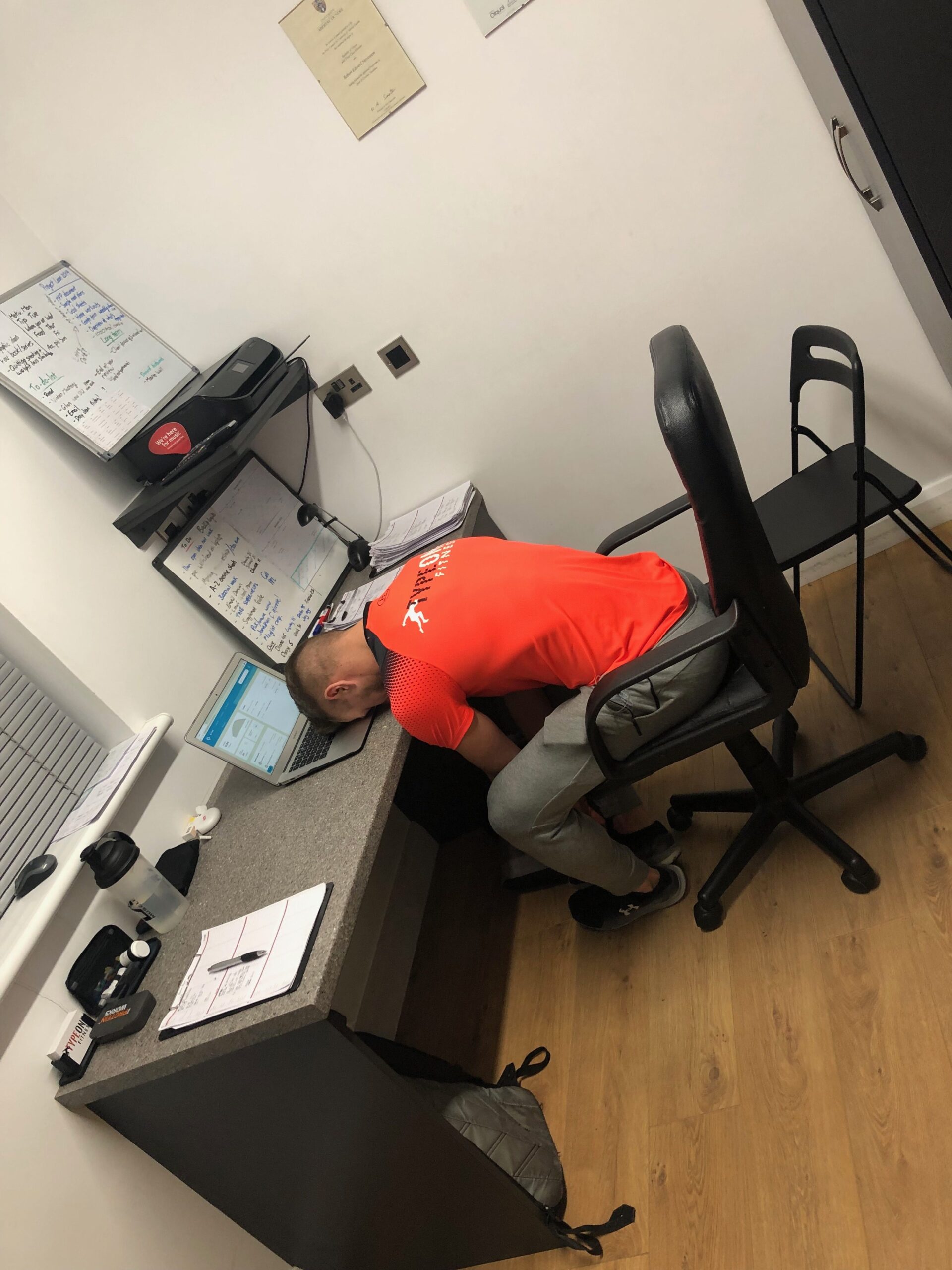It’s been a long stressful day, nothing seems to be going your way. You’re counting down the seconds until it’s home time. As the afternoon goes on, eyes start to get heavier, then it hits you…the hunger pang. From what we hear day in and day out, it seems to be around 3-4pm. An unbelievable urge comes over you to eat something sugary to keep you going, for one reason or another it tends to be something crappy you grab. That’s the start of it. You nibble you’re way to tea time, trying to fool yourself that if it’s a small enough handful, the calories won’t count. Then when you jump on the scales at the end of the week thinking you’ve been good, you’re heart broken when they haven’t shifted or maybe even went up a bit!
Why does this happen?
The early afternoon dip might happen for a number of reasons. The composition of food that you eat at lunch time can play a big role in how you feel in the early afternoon. As you might already know, different foods will be digested/absorbed at different rates. Carbohydrate is the fasted macronutrient to pass through your stomach and into your system, followed by protein and then fat. Even with that, different sources of carbohydrate and protein will be absorbed at different rates, thus having different effects on your blood glucose level. Most people have heard of a thing called the glycemic index. This is the effect that a given food has on an individual’s blood glucose level. It is thought that lower GI foods will keep you fuller for longer as they are absorbed and digested slower, have less of an impact upon blood glucose levels which may avoid the sharp rise and fall of blood glucose levels that are associated with large ‘hunger pangs’. I know that with type 1 diabetes, if I eat a massive meal with a high amount of carbohydrate, my system can only process so much at one time, rusting in a rise in blood glucose levels which leaves me tired, very lethargic, sluggish, dopey and makes it more difficult to concentrate on anything. Worst of all, it makes me CRAVE more carbohydrate. The very thing that has done the harm. It’s a horrendously vicious cycle. This same trend has been reported in people who don’t have diabetes.
What can you do about it?
Plan a snack
A recent member comment…“If I don’t get my snack at 3pm, it all goes downhill from there!” The simplest way to avoid grabbing something unhealthy in the afternoon is to plan in a nutritious snack. My advice would be a piece of fruit, a small yoghurt, a low calorie protein bar, a small portion of last nights evening meal or something to that effect. Enough to keep you going, but not nearly as much as you might consume at a meal.
Food diary
Writing things down can help you identify hunger patterns, thus allowing you to address the point in the day where the hunger hits you. If you know when it’s coming, you can be 100% prepared for it.
Routine
This is major! Getting your body into a routine so it’s knows when to expect food can be one of the biggest factors in weight loss as well as in diabetes control. Getting into a habit of regular meal times and regular exercising times will allow you to get to know your body and learn how to manage your hunger, not to mention how to refuel in and around your training most effectively.
Have a drink
A big glass of water, a cup of tea or a sugar free drink might be enough to keep the hunger away until your evening meal. It might not though, this one you’ll need to gauge yourself, although drinking a big glass of water in the afternoon certainly won’t do you any harm!
Keep busy/move
Simply getting up from your desk and going for a dander can take your mind off the hunger. If you finish work at 3, try and get out for a walk immediately when you get home or do something that distracts you from the hunger kicking in and energises you.
Consider the fullness factor
The satiety index is a similar concept to glycemic index, however it is a direct measure of how long a particular food may keep you full for. Foods that contain large amounts of fat, sugar, and/or starch have low ‘Fullness Factors (FF)’, and are much easier to overeat. Foods that contain large amounts of water, dietary fiber, and/or protein have the highest Fullness Factors. These high-FF foods, which include most vegetables, fruits such as oranges, apples and bananas, and lean meats such as steak, do a better job of satisfying your hunger. By choosing foods that keep you fuller for longer, you’ll improve your chances of consuming avoiding that dreaded afternoon dip!
Focus on sleep quality/quantity
Ensuring you get a good sleep at night will definitely reduce the likelihood of hunger pangs the next day. Aim for your 7 hours minimum. I you’re currently a member T1 Fitness, refer to our sleep guide that’s in our members facebook group for our 7 ways to get a perfect night sleep in our ’Sleep Guide’.
In conclusion, try to have a protein based lunch, plan in a snack for the early afternoon along with drinking plenty of water to keep hydrated. Try to get a good night sleep and monitor what happens as you go along. Leave the sugary snack in the cupboard!

